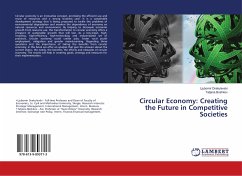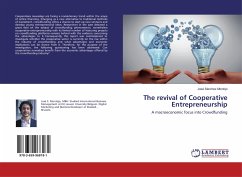Microenterprise development is usually affected by
accessible finance. Lack of access to credit deters
most microentrepreneurs because the formal sector has
the impression that microentrepreneurs are not
creditworthy. Cooperative Thrift and Credit Societies
have evolved overtime to solve the problem of
inaccessibility to credit and development of
entrepreneurial ability of owners of
microenterprises. Based on the aforementioned the
purpose of this study is to examine the effect of
belonging to an interdependent society like
Cooperative Thrift and Credit society on enterprise
performance and entrepreneurial development of
microentrepreneurs in southwestern Nigeria.
A combination of in-depth interviews, survey
questionnaires and participant observations were used
to collect data. Three types of microentrepreneurs:
members of Cooperative Thrift and Credit societies,
non-members who obtain finance from other sources and
those who did not have access to external finance in
the previous five years were surveyed. A comparative
study of different types of microentrepreneurs was
undertaken. Financial institutions in the study area
were also interviewed to assess their impact on
microenterprise development. The impact was evaluated
using real receipt, client longevity, graduation
schedule and other characteristics of the financial
institutions. Analytical techniques used in the study
include descriptive case study, descriptive
statistics, logistic regression, analysis of variance
(ANOVA), analysis of covariance (ANCOVA), and
principal component analysis. The findings of the
study suggested that the entrepreneurial ability,
accessibility to credit and business success of
people in Cooperative Thrift and Credit societies
were better and significantly different from non-members.
accessible finance. Lack of access to credit deters
most microentrepreneurs because the formal sector has
the impression that microentrepreneurs are not
creditworthy. Cooperative Thrift and Credit Societies
have evolved overtime to solve the problem of
inaccessibility to credit and development of
entrepreneurial ability of owners of
microenterprises. Based on the aforementioned the
purpose of this study is to examine the effect of
belonging to an interdependent society like
Cooperative Thrift and Credit society on enterprise
performance and entrepreneurial development of
microentrepreneurs in southwestern Nigeria.
A combination of in-depth interviews, survey
questionnaires and participant observations were used
to collect data. Three types of microentrepreneurs:
members of Cooperative Thrift and Credit societies,
non-members who obtain finance from other sources and
those who did not have access to external finance in
the previous five years were surveyed. A comparative
study of different types of microentrepreneurs was
undertaken. Financial institutions in the study area
were also interviewed to assess their impact on
microenterprise development. The impact was evaluated
using real receipt, client longevity, graduation
schedule and other characteristics of the financial
institutions. Analytical techniques used in the study
include descriptive case study, descriptive
statistics, logistic regression, analysis of variance
(ANOVA), analysis of covariance (ANCOVA), and
principal component analysis. The findings of the
study suggested that the entrepreneurial ability,
accessibility to credit and business success of
people in Cooperative Thrift and Credit societies
were better and significantly different from non-members.








